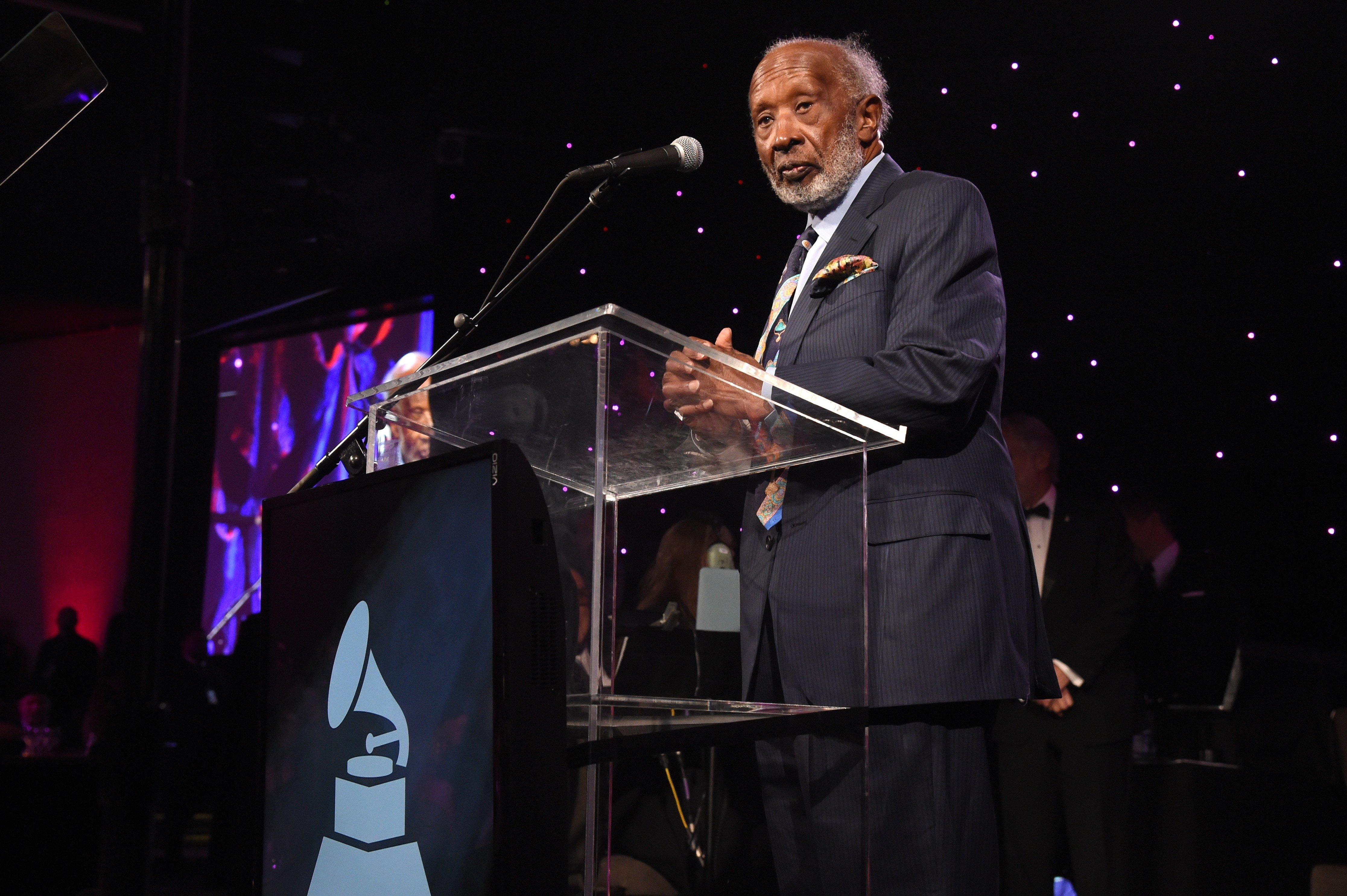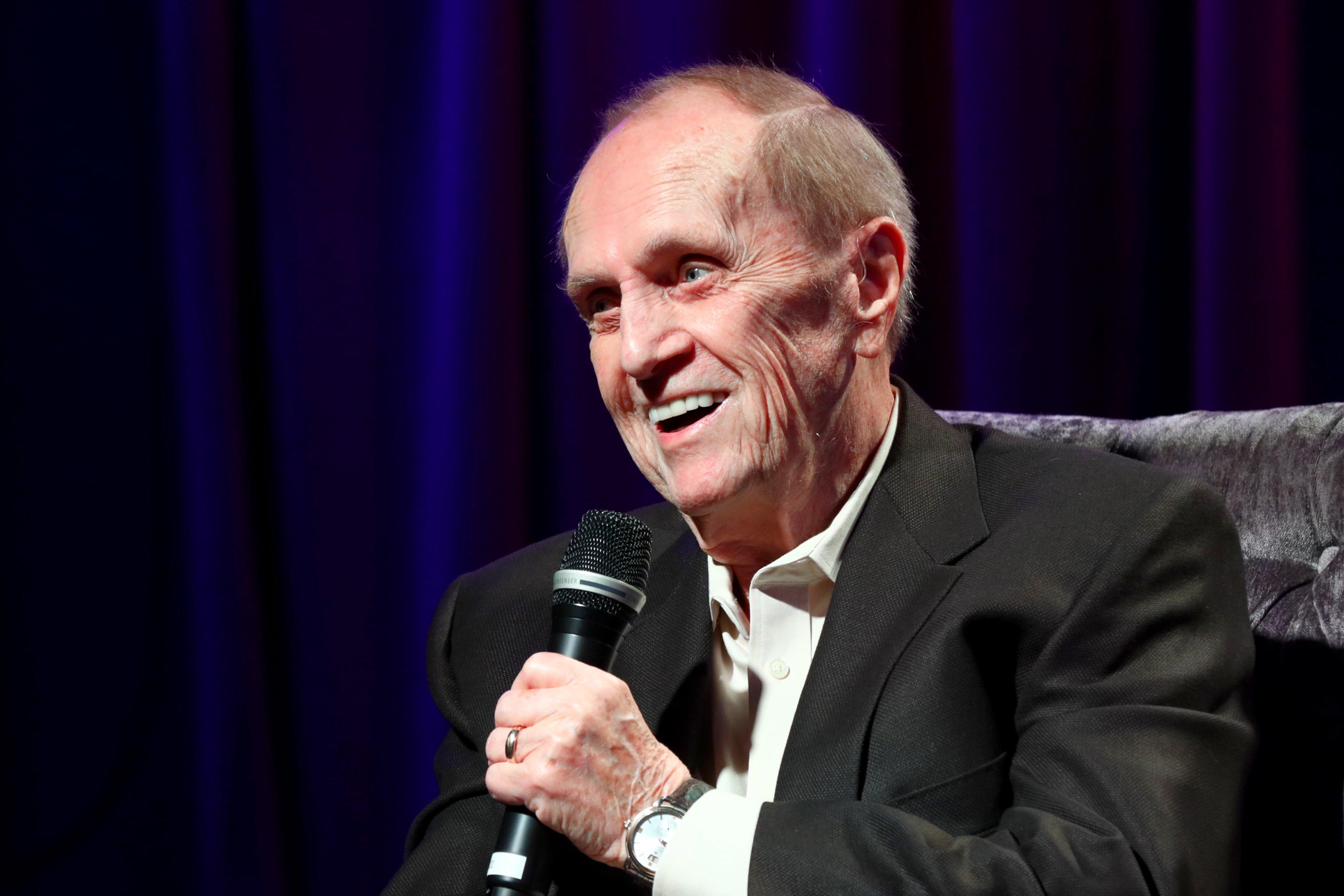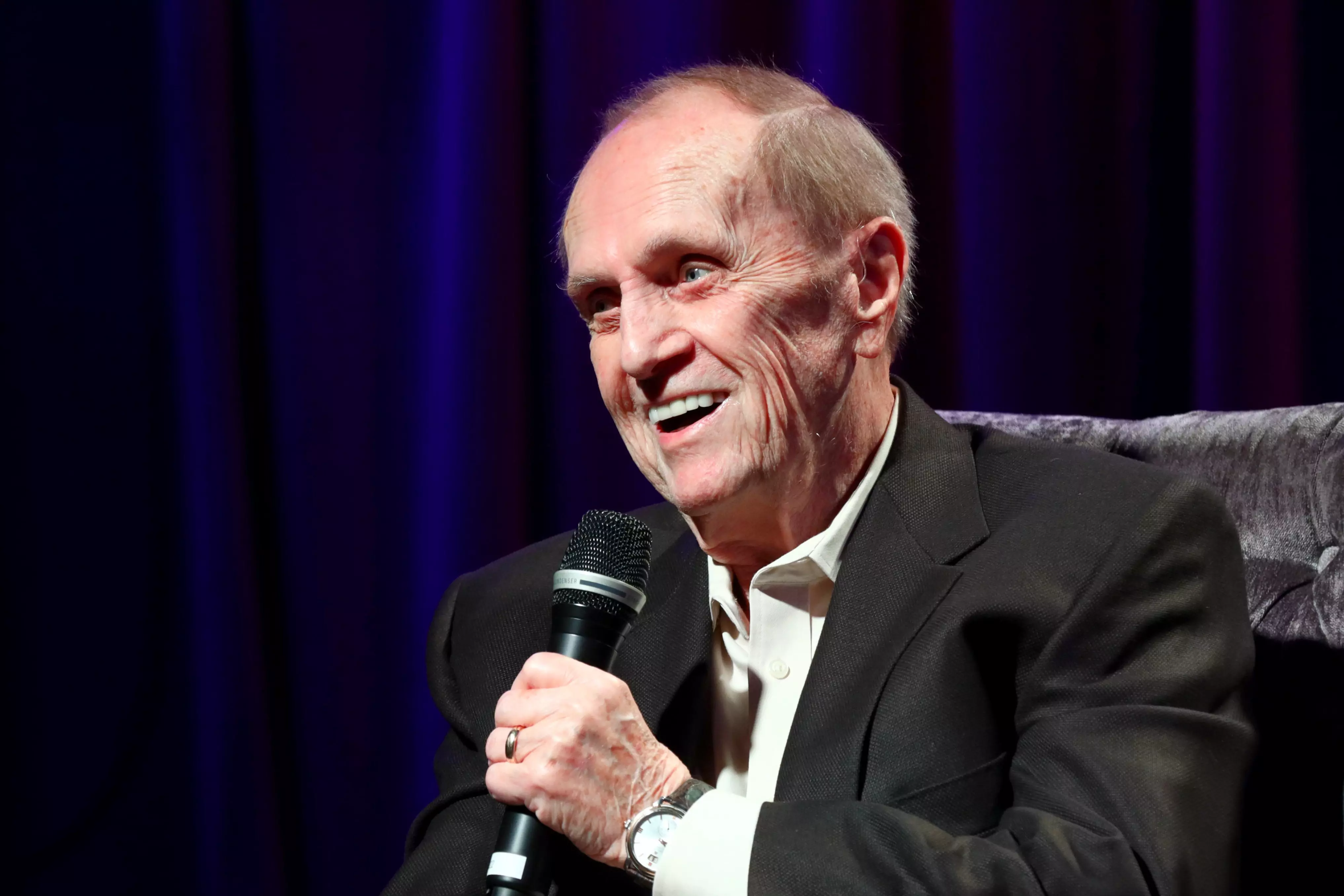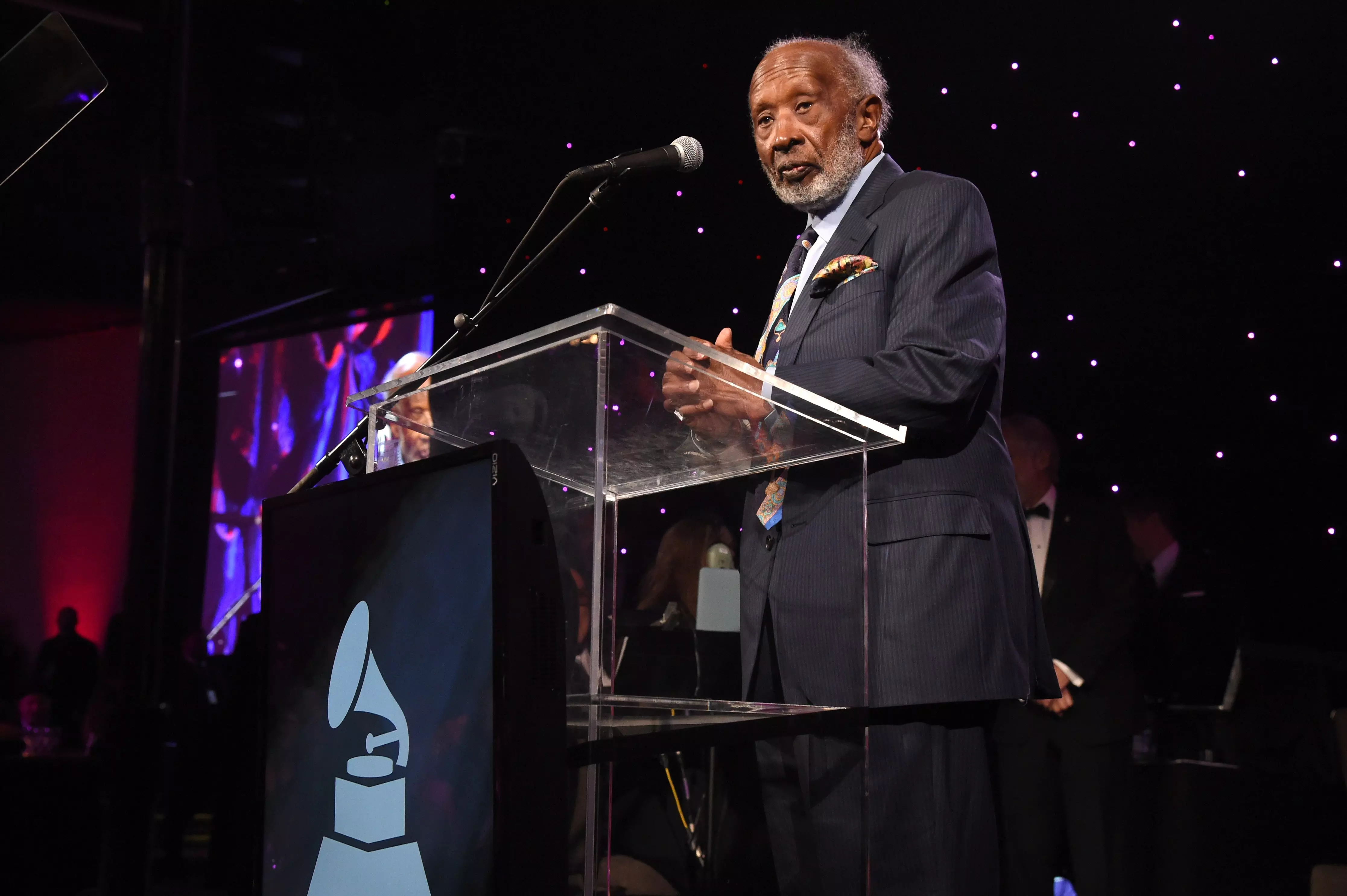Photo: Michael Kovac/Getty Images for The Recording Academy

news
Remembering Clarence Avant: The Black Godfather, Renowned Entertainment Mentor & Recording Academy Honoree
Jimmy Jam and Terry Lewis, L.A. Reid and Babyface, and Jimmy Iovine counted the entertainment pioneer as an essential piece of their success. The manager, label and broadcast media owner, and mentor died on Aug. 13 at age 92.
Known variously as the Black Godfather, the Godfather of Black Music and the Godfather of Black Entertainment, industry legend Clarence Avant was a pioneer over some seven decades in entertainment. The manager, label and broadcast media owner, and mentor died on Aug. 13 at age 92.
The breadth of Avant’s impact cannot be overstated. For his myriad accomplishments — many of which were historic and groundbreaking — he received the Recording Academy's Trustees Award in 2008. In 2019, Avant received the GRAMMY Salute To Industry Icons Award.
"Clarence Avant will forever be remembered as a trailblazer and changemaker whose commitment to music and the community paved the way for opportunity and greater inclusion within our industry," said Recording Academy CEO Harvey Mason jr. "He fundamentally transformed the musical landscape for the better. The depth of Clarence’s legacy will last for generations."
A lengthy list of luminaries in the worlds of entertainment, music, politics and more paid tribute to Avant on social media.
(L-R) Jay-Z, Clarence Avant and Sean Combs attend 2020 Roc Nation THE BRUNCH on January 25, 2020, in Los Angeles, California | Photo: Kevin Mazur/Getty Images for Roc Nation
Bill Clinton tweeted, "It was impossible to spend time with Clarence Avant and not come away feeling more positive and wanting to follow his example."
The Rev. Al Sharpton called Avant "a revolutionary," adding that "When people in the entertainment world were delegated to a near master/slave relationship, he broke through that wall of exploitation and made us respected business people.
"This man was singularly responsible for helping so many Black artists get paid their worth," civil rights attorney Sherrilyn Ifill tweeted.
Magic Johnson tweeted, "He knew how to touch every individual he met and meet them where they were in order to get them where they needed to be."
Jay-Z’s Roc Nation reflected on Avant's legacy:
Born Feb. 25, 1931, in North Carolina, Avant began his career under the tutelage of Louis Armstrong manager Joe Glaser. He would soon branch out on his own to manage artists including Sarah Vaughan, Freddie Hubbard and pioneering Black record producer Tom Wilson. Avant opened a Los Angeles office in 1964.
In 1967, Avant helped negotiate what is said to be the first joint venture between a Black artist and a major label when he mediated a deal for Motown writer-producer William "Mickey" Stevenson with MGM for the soul subsidiary Venture Records.
In 1969, Avant founded his own label, Sussex. The label’s first release was Cold Fact, the unsuccessful debut from the late Sixto Rodriguez, who would years later become the subject of the Oscar-winning doc Searching for Sugar Man. While it took 50 years for Rodriguez to get his due, such was not the case for other Sussex releases such as Dennis Coffey’s smash funky instrumental "Scorpio" and certainly not for Bill Withers, who from 1971 to 1972 had three singles go platinum or gold.
During this time, Avant also bought what became one of the first Black-owned U.S. radio stations, Los Angeles R&B outlet KTYM. Both this venture and Sussex would wind down by 1975, which led to Avant’s founding of Tabu Records.
It was at Tabu that Avant discovered the songwriting and production talents of Jimmy Jam and Terry Lewis, who had both been members of the Prince-owned band the Time. Jam and Lewis would create one of the most gravity-defying sounds of the ’80s, and Avant would eventually introduce them to Janet Jackson.
That kind of behind-the-scenes dot-connecting was the norm for Avant. He was considered an important mentor by Jam and Lewis, L.A. Reid and Babyface, industry titans Sylvia Rhone, Jheryl Busby, Jon Platt and Jimmy Iovine, and many others — including football great Jim Brown, whom Avant reportedly convinced to take up acting.
He was a political activist, especially for Black causes, and was an unofficial advisor to Presidents Jimmy Carter, Bill Clinton, George H.W. Bush and Barack Obama.
He would also serve as Chairman of Motown Records and would become the first Black person to serve on the international management board for PolyGram. He was the subject of the 2019 documentary The Black Godfather.
In addition to his Recording Academy Trustees Award, he was inducted into the Rock and Roll Hall of Fame in 2021 and is due to receive a star on the Hollywood Walk of Fame on Oct. 7.
There was no blueprint for Avant’s storied career. "I kept hearing about this guy Clarence Avant, but no one seemed to know what his actual official title was," Jim Brown recalled.
"My whole career has been like this," Avant once told Variety. "People ask me, ‘how did you do all this?’ How the f— do I know? I just do things. I just like to take shots."
Mogul Moment: How Quincy Jones Became An Architect Of Black Music

Photo: Rebecca Sapp/WireImage
news
Remembering Bob Newhart, The Comic Who Made GRAMMY History With His Debut Album
The legendary comic, whose work onstage and on screen spanned multiple generations, passed away at age 94 on July 18.
Bob Newhart, one of the most celebrated comedians of his generation and renowned for his deadpan delivery died at his home in Los Angeles on July 18. He was 94.
Awarded the John F. Kennedy Center for the Performing Arts’ Mark Twain Prize for American Humor in 2002, Newhart launched his career with a record-setting record. By the time he transitioned to television with two successful sitcoms, he had become a household name.
Newhart made his vinyl debut on April Fool’s Day in 1960, when Warner Brothers Records released his first comedy album, The Button-Down Mind of Bob Newhart. A year later, at the 3rd GRAMMY Awards, the former accountant-turned-comic took home three golden gramophones.
At the 1961 GRAMMYs, Newhart won Album Of The Year — beating out two classical albums as well as works by Nat King Cole, Frank Sinatra and Harry Belafonte. Newhart also won Best New Artist at that year's ceremony and, to this day, is the only comedian to win in both categories.
Recorded live on Feb. 10, 1960 at the Tidelands Motor Inn in Houston, Button Down Mind also became the first comedy audio album to reach No. 1 on the Billboard 200 chart. The album is widely considered to be one of the most consequential comedy albums of the 20th century and, fittingly, features the subtitle The Most Celebrated New Comedian Since Attila (the Hun).
The album was added to the Library of Congress’s National Recording Registry in 1960. That year, The New York Times noted that Newhart was “the first comedian in history to come to prominence through a recording.” In 2007, the Recording Academy inducted The Button-Down Mind of Bob Newhart into the GRAMMY Hall of Fame.
His second album, The Button-Down Mind Strikes Back!, similarly topped the Billboard charts and earned Newhart his third GRAMMY Award, this time for Best Comedy Performance — Spoken Word.
Newhart received two additional GRAMMY nods during this illustrious career: His Button Down Concert album was nominated for Best Spoken Comedy Album at the 40th GRAMMY Awards, and nine years later his I Shouldn't Even Be Doing This! was nominated for Best Spoken Word Album.a
The success of Button-Down Mind led to the launch of Newhart's long TV career. His NBC variety show, "The Bob Newhart Shot" only lasted one season, but earned an Emmy for Outstanding Comedy Series in 1962. Newhart found greater success through CBS, which broadcast a series of the same name. On the second "The Bob Newhart Show," which ran from 1972 to 1978, the comic actor played a psychologist,
Four years later, he followed up with another sitcom, "Newhart," which aired until 1990 and in which Newhart played a Vermont innkeeper.
Bob Newhart has continued to have a presence on the small screen. His recording debut has been referenced in a variety of contemporary period shows, including "Mad Men" and "The Marvelous Mrs. Maisel."
During his decades-long television career, Newhart received nine EMMY nominations, including as Outstanding Lead Actor in a Comedy Series over three consecutive years for "Newhart" and three for Outstanding Guest Actor in a Comedy Series for his appearances on CBS’ "The Big Bang Theory."
Born George Robert Newhart on Sept. 5, 1929, in Oak Park, Illinois, Newhart graduated from Loyola University of Chicago in 1952 with a degree in accounting. After serving in the Army during the Korean War, he returned to Loyola for law school, but dropped out and pursued office work.
Newhart worked as an accountant for United States Gypsum Corp., which manufactures construction materials, and later as a copywrighter for Fred Niles Films Company in Chicago. During that time, Newhart began recording "long, antic" phone calls with a friend as audition tapes for comedy jobs. They caught the attention of a Chicago disc jockey, who introduced Newhart to the head of talent at Warner Bros. Records and which led to a life-changing contract in 1959.
It was in the latter category that Newhart won his first and only Emmy in 2013, 20 years after the Academy of Television Arts and Sciences inducted him into its Hall of Fame.
Remembering Legends & History-Makers

Remembering Bob Newhart, The Comic Who Made GRAMMY History With His Debut Album

2024 GRAMMYs In Memoriam: Stevie Wonder, Lenny Kravitz & More Pay Tribute To Late Icons

Remembering Clarence Avant: The Black Godfather, Renowned Entertainment Mentor & Recording Academy Honoree

Remembering Sinéad O’Connor: 5 Essential Tracks By The Iconoclastic Singer/Songwriter

Remembering The Artistry Of Tina Turner, "The Epitome Of Power And Passion"

Photo: JC Olivera/WireImage
news
2024 GRAMMYs In Memoriam: Stevie Wonder, Lenny Kravitz & More Pay Tribute To Late Icons
A star-studded tribute honored the late leading lights of the music industry. In a heartfelt and exciting segment, Tina Turner was remembered with a spirited cover of "Proud Mary" and while Stevie Wonder did a tender posthumous duet with Tony Bennett.
Oprah Winfrey, Stevie Wonder and more graced the GRAMMYs stage for a star-studded tribute to Tina Turner, Tony Bennett and other stars we lost in 2023.
The In Memoriam segment of the 2024 GRAMMYs began with Wonder honoring the "I Left My Heart in San Francisco" crooner, who passed away in July after a long battle with Alzheimer's. With Wonder on piano and an ethereal, archival video of Bennett singing, the two created a tearjerker posthumous duet of "For Once in My Life" before transitioning into "The Best is Yet to Come."
Next, a video memorialized Jimmy Buffett before a visibly emotional Annie Lennox appeared on stage with Wendy and Lisa to remember Sinead O'Connor with a tender cover of the late Irish alt pioneer's classic single "Nothing Compares 2 U." "Artists for ceasefire! Peace in the world!" the Eurythmics icon shouted with raised fist at the end of her performance.
Elsewhere during the In Memoriam package, Burt Bacharach was celebrated for his unmistakable impact on popular music throughout the 20th century. Then, Lenny Kravitz paid respect to Clarence Avant as the "Godfather of Black Music" with a tribute that included a performance of "Ain't No Sunshine" and "Lean on Me" by Jon Batiste. Ann Nesby, Jimmy Jam, Terry Lewis and others joined later to perform "Optimistic."
Read more: Remembering The Artistry Of Tina Turner, "The Epitome Of Power And Passion"
Last but certainly not least, Oprah Winfrey ushered in a tribute to Turner, saying "Tina Turner was always a towering figure. She is our forever goddess of rock and roll who inspired millions, a moving symbol of grace and grit, soul and power…And as those big wheels of time keep on turnin’, Tina’s voice continues to speak to all of us."
Following her remarks lionizing the Queen of Rock 'n Roll and nine-time GRAMMY winner, Oprah ceded the stage to Fantasia Barrino for a transcendent, celebratory performance (with much dancing, as Turner would have wanted) of "Proud Mary" that went from the stage to the audience and back.
2024 GRAMMY Nominations: See The Full Winners & Nominees List

Photo: Rob Ball/Redferns via Getty Images
list
Remembering Sinéad O’Connor: 5 Essential Tracks By The Iconoclastic Singer/Songwriter
Sinéad O’Connor passed away on July 26 at age 56. The Irish musician had a voice like no other, which she used to speak against injustice.
Few had a voice that compared to the eight-time GRAMMY nominee Sinead O’Connor. An artist and an activist, O’Connor wrote with conviction and pathos, packing a punch with both poetry and politics. Her voice was her main instrument and lifelong weapon — one she wielded well in a whisper or a wail.
Born Sinéad Marie Bernadette O’Connor in Glenageary, County Dublin, Ireland on Dec. 8 1966, the singer passed away on July 26, 2023. She was only 56.
"The Recording Academy mourns with the music community today as we learn of the passing of Sinéad O’Connor," said Recording Academy CEO Harvey Mason jr. "Revered by audiences around the globe, her music has left an indelible mark on our culture that will continue to inspire. Our thoughts are with her loved ones at this difficult time."
Tributes on social media arrived throughout the day. Everyone from heads of state to fellow GRAMMY winners and nominees paid their respects. Bryan Adams wrote: "RIP Sinead O’Connor. I loved working with you making photos, doing gigs in Ireland together, and chats, all my love to your family." Tori Amos called O’Connor "a force of nature and a brilliant songwriter and performer whose talent we will not see the like of again. Such passion, such intense presence & a beautiful soul, who battled her own personal demons courageously." Billy Bragg added that she was "braver than brave," and Yusuf/Cat Stevens called her a "tender soul."
O'Connor's 1987 debut record, The Lion & The Cobra, received critical acclaim and achieved gold certification in the U.S., the U.K. and the Netherlands. Over the course of a three and a half-decade career, the songwriter released 10 studio albums (her last, I’m not Bossy, I’m the Boss, came in 2014) that demonstrated her broad influences and desire to constantly explore new genres, from jazz to pop. One of these forgotten side roads traveled from the mid-2000s was her first reggae album (Throw Down Your Arms), produced by Sly & Robbie.
The oft-misunderstood artist was a non-conformist and was ok with that. Fame was not always her friend and caused much anxiety; later, she lived behind a veil after converting to Islam in 2018. O’Connor had a troubled upbringing marked by trauma and tragedy, much of which she detailed for the first time in her candid 2021 memoir Rememberings. Just last year, the songwriter lost her son to suicide. The grief of this no doubt constantly consumed her.
To some, O’Connor is remembered as much for her action as her albums — specifically tearing up a photo of Pope John Paul II (that once hung on her mother’s wall) following her October 1992 "Saturday Night Live" performance to raise awareness about sexual abuse within the Irish Catholic church. This act got her black balled for life by NBC, but she never regretted this fit of rebellion nor any other public stance she took on causes and issues she championed.
Her songs were a gift that will keep on giving for generations to come. To get a sample of the beauty and the passion of this artist gone far too soon, here are five essential Sinéad O’Connor tracks.
"Mandinka" (1987)
The second single off O’Connor’s debut The Lion And The Cobra, "Mandinka" (named for a West African ethnic group) resonated most. In Rememberings, O’Connor wrote that watching "Roots’" — a TV miniseries aired in the late 1970s based on Alex Haley’s book of the same name — inspired this song.
"Mandinka" became a college radio hit and was nominated for a GRAMMY Award for Best Rock Vocal Performance, Female. The then 20-year-old performed "Mandinka" at the 31st GRAMMY Awards, sporting Public Enemy’s symbol on her shaven head in solidarity with the hip-hop artists who boycotted the ceremony that year in protest of the inaugural Best Rap Performance award not being included in the telecast.
"Drink Before the War" (1987)
One of O’Connor’s earliest demos (she wrote it as a teenager), the song showcases the incredible range — and rage — that the singer was capable of.
"Drink Before the War" was written about the headmaster at O'Connor's Catholic reform school who tried his best to whip the creativity out of her. As this song shows, it just furhter fueled her muse and her ire.
"Nothing Compares 2 You" (1990)
O’Connor took this song Prince-penned and made this pop lush, string-laced ballad her own. Her voice builds gradually like a steam engine before reaching a climax in the chorus, when the singer shows the full range of her instrument.
"Nothing Compares 2 You" became an MTV staple, which helped the song climb to the top spot on the U.S. Billboard charts and hit No. 1 in the UK. This single received three GRAMMY nominations as well as her first — and only — golden gramophone for Best Alternative Music Performance. Famously, O'Connor did not attend the ceremony to accept the award, and instead penned an open letter detailing her reasoning.
"Black Boys on Mopeds" (1990)
From its opening lines, O’Connor wastes no time telling listeners what the song is about.
Referencing the Chinese government’s handling of the student protests that occurred in Tiananmen Square the previous year, the singer lashes out at Margaret Thatcher’s Conservative government for its brutality, singing in reference to police racism on the homefront: "it’s strange she should be offended when the same orders are given by her."
Backed by the simple strums of an acoustic guitar, O’Connor's biting chorus further reveals this inherent hypocrisy: "England’s not the mythical land of Madame George & roses, it’s the home of police who kill Black boys on mopeds."
"No Man’s Woman" (2000)
From her 2000 release Faith & Courage, this anthem with a bouncy beat was inspired by the birth of O’Connor’s daughter. After more than a dozen years working in a male-dominated record industry — and after being blackballed and ostracized by many throughout the late 1990s following her "SNL" stunt — O’Connor returned with this empowering song that shows both her feminist and spiritual side.

Photo: Rob Verhorst/Redferns
feature
Remembering The Artistry Of Tina Turner, "The Epitome Of Power And Passion"
Throughout her eight GRAMMY wins and 25 nominations, Tina Turner’s vast and generation-spanning musical output proved equally entertaining and inspirational. The Bold Soul Sister died on May 24 at her home near Zurich, Switzerland. She was 83.
The Queen of Rock 'n' Roll, recording legend, icon of empowerment. No matter how one refers to Tina Turner, her passing constitutes a seismic loss that marks the end of a shining cultural legacy which leaves in its wake an industry-shaping career. Throughout her eight GRAMMY wins and 25 nominations, Turner’s vast and generation-spanning musical output proved equally entertaining and inspirational.
The icon died on May 24 at her home near Zurich, Switzerland. She was 83.
"Tina Turner broke barriers for women on and off the stage throughout her incredible career," said Harvey Mason jr, CEO of The Recording Academy, of Turner who received GRAMMY’s Lifetime Achievement Award in 2018 and is a three-time inductee to the GRAMMY Hall of Fame. "She amazed audiences worldwide with her electrifying performances, including on our GRAMMY stage in 1985 and 2008, and was an undeniable rockstar who paved the way for so many with her signature style and powerful vocals. She will be greatly missed by all the people she touched around the globe."
It’s a sentiment shared by the music industry, and world, at large. "She was truly an enormously talented performer and singer,"Mick Jaggerwrote on social media. "She was inspiring, warm, funny and generous. She helped me so much when I was young and I will never forget her." On her website, Beyoncé — who performed with Turner at the 50th GRAMMY Awards — paid tribute to her "beloved Queen," writing, "I love you endlessly. I’m so grateful for your inspiration and all the ways you paved the way. You are strength and resilience. You are the epitome of power and passion."Elton John put it simply: "We have lost one of the world's most exciting and electric performers," he wrote. "She was untouchable."
Turner’s untouchable talent famously embodied two phases. First, her tumultuous collaboration with husband Ike Turner, during which they performed as a duo and yielded hits including the oft-covered "Proud Mary." The instantly-recognizable song earned the couple a GRAMMY Award for Best R&B Vocal Performance By A Group in 1972 and was inducted in the GRAMMY Hall of Fame in 2003. In her triumphant second act, Turner broke away from the partnership. She reinvented herself as a solo performer, improbably transitioning from a '60s and '70s-era rocker to arena pop star in the 1980s.
For her efforts, the singer swept the major categories at the 1985 GRAMMY Awards, winning Record of the Year, Song of the Year and Best Female Pop Vocal Performance for "What’s Love Got To Do With It." She also took home the golden gramophone for Best Female Rock Vocal Performance for "Better Be Good To Me."
One of her most indelible hits, Turner utilized "What's Love Got To Do With It" as a call to action, becoming brutally honest about her abusive relationship with her ex-husband along the way. Turner later recalled toRolling Stone that when she left Ike in July 1976, "I had nothing. I didn’t even know how to get money. I had a girl working for me who had worked for Ike, because she knew about ways of getting money. I didn’t know how to do any of that stuff." She later devised what’s considered one of the greatest comebacks in music history.
First offered to Donna Summer — who sat on the track before ultimately passing — songwriter Terry Britten later revealed that she thought "What’s Love Got to Do With It" was "awful." Turner didn't like the song either, but recorded it following encouragement from her manager, Roger Davis.
"I said, 'If it doesn't work out, we won't use it. So let's give it a go,'" Britten recalled in her 2021 documentary, Tina. It wasn’t until Turner laid down her vocal track that the song was elevated from pop confection into a showcase for the vocal powerhouse. "They weren't used to a strong voice standing on top of music," Turner said in the documentary. "But I converted it and made it my own."
Turner’s deft musical translation is evident throughout her eclectic discography, from the blues-inflicted rock she performed as Ike & Tina Turner, to pop anthems like 1989’s "The Best" (which became a trademark and, naturally, the title of a popular greatest hits album). In 1962, she was nominated for her first GRAMMY Award for Best Rock and Roll Recording for "It’s Gonna Work Out Fine," her and Ike’s hit from the previous year which was offered to them after songwriter Rose Marie McCoy saw their energetic stage show at the Apollo.
It was an auspicious early hit for Turner, who would become a staple of the category for Best Rock Vocal Performance, Female. Decades later, she earned back-to-back wins in the category for "One of the Living" and "Back Where We Started" in 1986 and 1987, a nomination for "Better Be Good To Me" in ‘88, and took home the golden gramophone in ‘89 for Tina Live in Europe, among many others.
"My songs are a little bit of everybody’s lives who are watching me," said Turner to Rolling Stonein the midst of her hot streak in 1986. "You gotta sing what they can relate to. And there are some raunchy people out there. The world is not perfect. And all of that is in my performance; I play with it."
Born Anna Mae Bullock, Turner’s journey to musical dynamo began on the farmlands of Tennessee where she discovered early on her passion for artistic expression. "As a girl, every chance I got, I’d go to our local movie theater and memorize scenes so I could reenact them," she recalled in 2021 the Harvard Business Review. "Although I did have a bit of singing training in high school and even learned some opera, my voice and dance abilities have mostly come naturally to me."
That vocal prowess and inimitable energy as a performer was on full display throughout her life behind the microphone, one of the most memorable examples being "River Deep-Mountain High." Inducted into the GRAMMY Hall of Fame in 1999, her duet with Ike was produced by Phil Spector who Turner said had him cut her vocals ad nauseam to spectacular results. "I must have sung that 500,000 times," she told Rolling Stone after the publication ranked the track No. 33 of their list of the 500 Greatest Songs of All Time. "I was drenched with sweat. I had to take my shirt off and stand there in my bra to sing."
Upon her death, the New York Times called her "a magnetic singer with explosive power." That power was visible on and off the stage, both in her artistry and ability to soldier on in the face of the numerous obstacles. In a 2005 interview with Oprah Winfrey, Turner explained, "There's an expression, 'You'll never get out of this world alive.' It's true. We won't. Go forward. Do your best with your makeup, hair, and clothes."
In that same interview, Turner also mused about her legacy, touching on the inspiration she doled out by being her authentic self. "My wish is to give the kind of truth to people that will help them change their minds. When that happens, I'll be the best that I can be."
